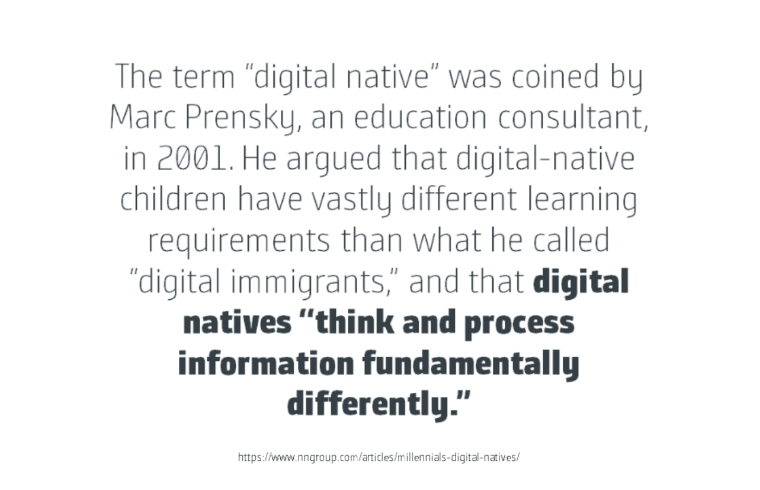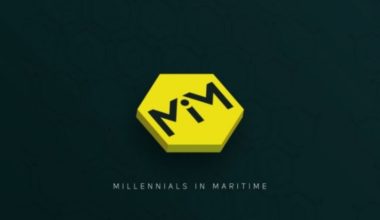Dirk: How many screens do you interact with on a daily basis? While these guys interact with their screens, I think it’s fair to say that these young guys use their smartphones to navigate almost every aspect of their lives, and in contrast, the Baby Boomers made it to the moon and back without a smartphone. In fact, the computer they used on board the Apollo spacecraft was no more powerful than a pocket calculator. It had a RAM of 64 kilobytes, running at .043 megahertz. The smartphones these guys are using, they are way more powerful and, put simply, an iPhone could be used to guide 120 million Apollo spacecrafts to the moon all at the same time. But, with all that smart technology at hand, where will it take us?
Eslie: Yeah, I think it’s an important comment you made. I think everyone around us, not just the millennials, uses these amount of screens now every day. When I was a teenager, I didn’t have any screens apart from maybe a television or a computer. So, I think we are sort of in this transition, and we’ve seen this change develop throughout our youth, and now we’re able to work with that in our career.
Dirk: But is technology always the right solution?
Marius: No, not at all. For me, working as a product manager developing technology-driven products, when we look at the problem or a new opportunity that we want to address, the natural way to start is, what can we do without building technology? And the reason is that building technology is expensive, and it is also expensive to maintain and run. I wouldn’t say that technology is the answer to everything.
Jennifer: I think of course, technology can be a solution … but sometimes, I think you have to have the right mix and not in every situation, every country, and not for every problem, challenge, and so on, is technology the right solution. Most of the time, it begins with the people and maybe the mindset. And first of all, look at your processes instead of thinking, “Let’s buy a great system here.” What exactly is the problem you’re trying to solve? And, it doesn’t essentially have to be technology then, although of course most of the time, you can solve it with technology.
Dirk: Elliot?
Elliot: So, I actually think it’s kind of interesting. I agree with Jennifer’s challenges. On the other hand, I have kind of a really different perspective from the question that’s being asked. I don’t think of technology as the solution. It’s not a choice. Everything is using technology. It’s like asking, is literacy always the solution? Yes. I think we should all learn to read and write. Technology is just a facet of our lives that we’re leveraging alongside leveraging all kinds of other ideas and things, so I think if you’re asking if technology is a solution, I think that you’re fundamentally sounding like a digital immigrant.

Dirk: Thank you.
Elliot: I don’t mean it in a mean way, Dirk.
Dirk: Yeah. But then if we look again, the question we started this discussion with was how to attract millennials to our industry. And, is our industry using cutting-edge technology to solve our operations, our problems? And, is that a way to attract millennials to our industry, or do you say no, that’s not a reason I would join our industry?
Krzysztof: When we started talks with Rotterdam about getting the Navigate system … when I heard about it, I was just so shocked that it’s a new thing. Was just so obvious to me and so it just should be there, like forever. Also, when I heard about Port Community Systems, that they can let the captain of the ship tell in 24-hour advance that maybe he should slow down a little bit because his quay is not going to be ready for him, again, I was like, it’s just now that you guys thought about this? The room for improvement in this industry is larger than life.

Audience Question: Blockchain: is it hype or a game-changer?
Marius: I can say that in general, yes, I think it’s hyped. As a product manager, I spend a lot of time talking to customers all over the world and never, ever have I come across a customer telling me that we need blockchain. Never. And the same goes for AI and all the other buzzwords. What we do see on occasion, though, is a problem that could be addressed with blockchain or AI. From my point of view, I think blockchain is great if you’re dealing with legal documents, so legal tech, maybe, for a shipping industry bill of lading, will go only on blockchain in the future.
Eslie: I think about blockchain, about the leading-edge technology. I think if you look around, as we see, there’s a lot of technology, and there’s a lot of innovation and development, and I think one of the key challenges for all of us in the industry is, how do you walk around here and pick and choose what is suitable for your operation or what is suitable for your type of work? We need to be very aware that we can implement this in small, little steps, and we can grow into this future. And, we’re looking to explore this future. But, it’s not here tomorrow. It’s going to be a long process, and we all need to go on that journey together.


